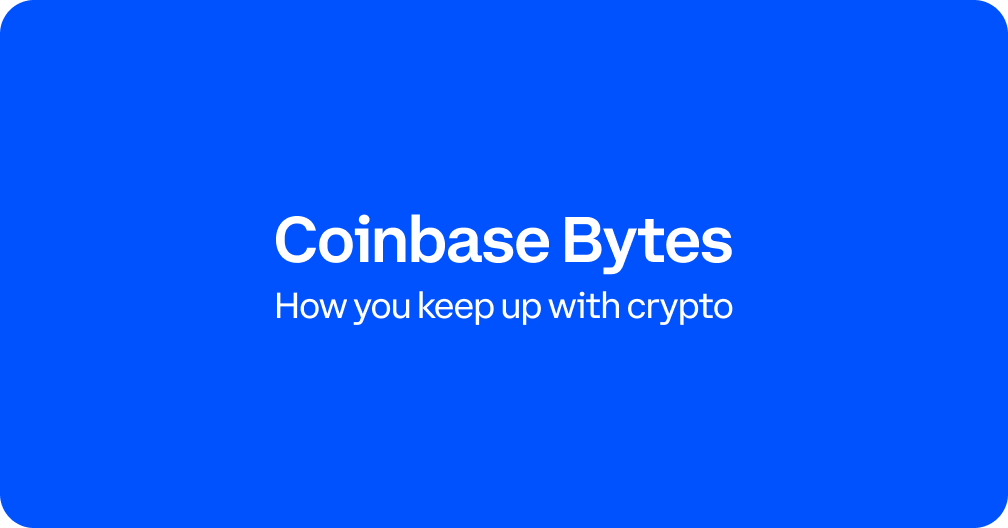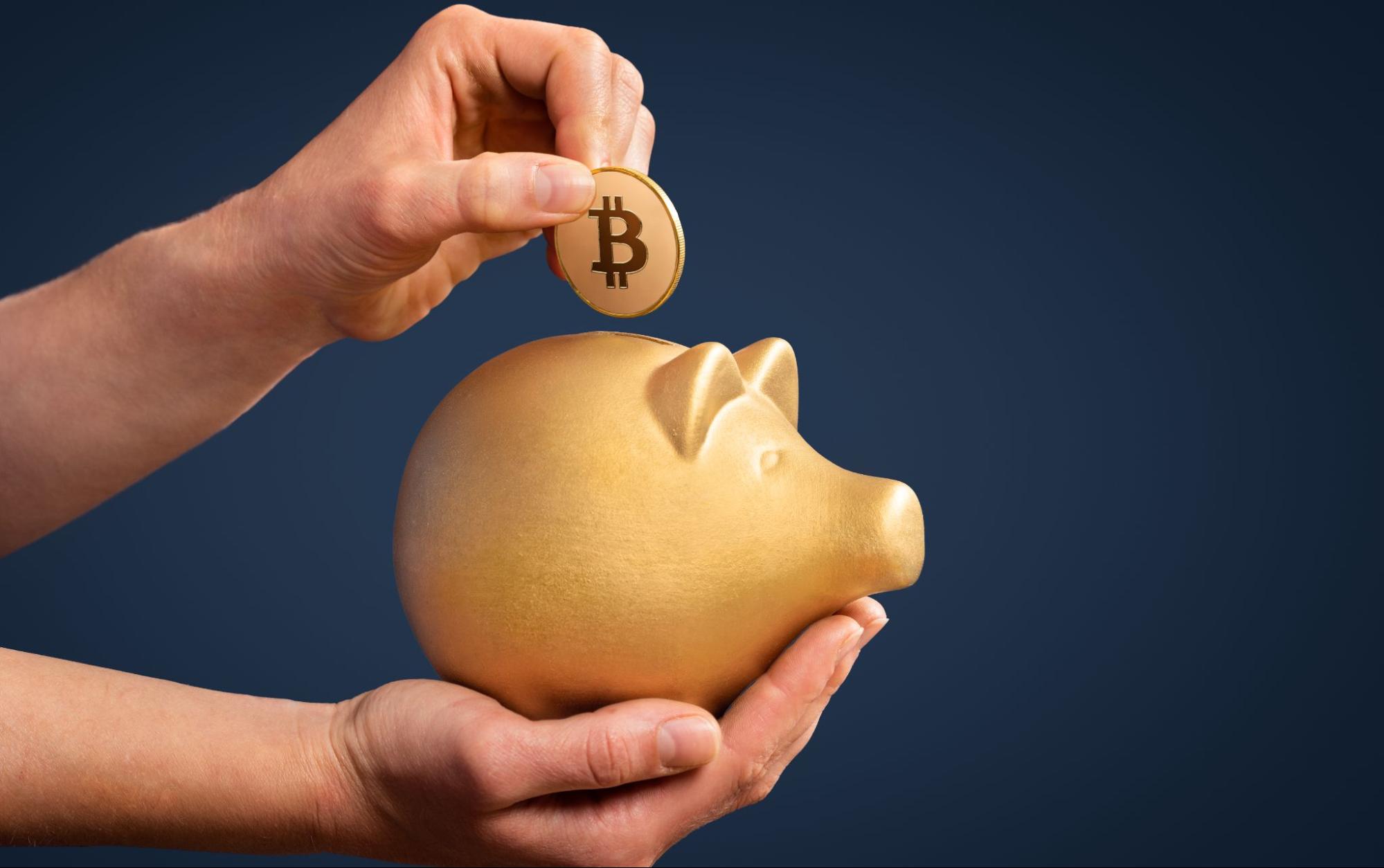Pro sports go long on crypto
There’s never a dull moment on the blockchain. Here’s what you need to know this week:
Global uncertainty shook the market. Record inflation and growing geopolitical tension sunk stocks and rattled crypto markets.
Pro sports continued to embrace crypto. Tales from the Crypto Bowl were inescapable this week — but how’d we get here?
Meet Drift, a rising NFT photographer. Army veteran Isaac Wright takes photos from dizzying heights and thinks crypto is the future for people of color.
ON THE BRINK
Stocks, Bitcoin slide as U.S. inflation hits 40-year high
You’ve seen the evidence on your grocery bill, but now it’s official: the U.S. dollar has continued to lose value at a historic pace, with the Consumer Price Index (CPI) reporting increases of 7.5% this month — the biggest spike since 1982. As costs climb higher — due to the ongoing supply chain crisis and pandemic-era stimulus programs — the Federal Reserve has signaled that near-zero interest rates will soon rise too, with Wall Street expecting an increase of 1.75% or more by the end of the year. So how did markets respond? With a predictable amount of churn — but the long term consequences are harder to tease out. Let’s dig in.
Bitcoin had a wild ride this week. The cryptocurrency, which was designed to resist inflation (due to a maximum supply of 21 million coins), briefly spiked last Thursday to $45,800 on the CPI news. Other headlines were received less enthusiastically. Fears around Russia’s intentions in Ukraine helped push BTC back down below $43,000 — but as geopolitical tensions have waxed and waned over the last several days Bitcoin seemed to settle in the $44,000 range on Tuesday.
When do experts expect interest rates to rise? Based on last month’s signals, rates could begin ticking upward in March. But the Fed faces a hard choice: raising interest rates too quickly could threaten economic recovery. As the Vice Chairman of BlackRock (which manages nearly $10 trillion in assets) argued last week, “central banks will have to live with higher inflation because the cost to the economy will be too great if they raise interest rates too much.”
Markets remain jumpy over Ukraine-Russia tensions. Ethereum’s founder, Russian-Canadian programmer Vitalik Buterin (who has previously met Russian president Vladimir Putin) issued a plea on Twitter: “An attack on Ukraine can only harm Russia, Ukraine and humanity…” Meanwhile, Bitcoin donations are pouring in to support Ukrainians facing the prospect of Russian aggression. (In 2021, Ukraine legalized crypto in a bid to attract tech talent and investment. This year, Russia’s government clarified regulations by treating crypto as a new form of currency.)
However, the world’s largest asset manager seems to be doubling down on crypto. After hiring a blockchain strategy lead in June, BlackRock is preparing to offer crypto trading for its clients, according to CoinDesk. In January, BlackRock filed for the creation of a new ETF focused on companies developing blockchain and crypto tech. The firm is also one of largest institutional owners of shares in MicroStrategy, a publicly-traded company that holds nearly 125,000 BTC in its corporate treasury (worth $5.5 billion).
Why it matters… Rising geopolitical tensions, supply chain woes, soaring inflation — all of these variables could impact markets for months to come. But they also offer a real-time test of Bitcoin's utility as a fixed-supply currency beyond the control of any person, company, or government. It’s a proposition increasingly supported by some very smart money — from BlackRock to legendary investor Bill Miller, who recently said that BTC comprises a “very big” portion of his net worth. Or as Miller puts it, “Bitcoin is insurance against financial catastrophe.”
GOING LONG
How crypto is blitzing professional sports
If you tuned in to the Super Bowl this Sunday, you probably know that the big game’s real MVP was crypto. While crypto commercials (including ours!) were a blockbuster part of Sunday’s broadcast, crossovers between pro sports and crypto have been steadily increasing over the last year. Exchanges have forged partnerships with leagues, arenas, and individual teams; meanwhile, superstars are getting paid in crypto, becoming proud owners of ape NFTs, and launching NFT companies of their own. Let’s take a look at some of the ways pro sports have gone long on crypto.
Since NFL player Russell Okung elected to receive half of his salary in bitcoin in 2020, players from top leagues have followed suit. NFL MVP Aaron Rodgers, for instance, received part of his salary in BTC this season, as did Super Bowl champ Odell Beckham Jr. In the NBA, Klay Thompson and Andre Iguodala of the Golden State Warriors are each receiving $1 million of their salary in BTC.
The NFL sees crypto as a key part of its future. The league has partnered with Dapper Labs, makers of NBA Top Shot (the fifth most popular NFT collection ever), to create a collectible line called NFL All Day. The NFL and Ticketmaster have also teamed with low-fee blockchain Polygon to create commemorative NFTs for game ticket holders. And in a signal of the NFL’s broader ambitions, the league has begun lobbying the federal government on issues related to blockchain technology.
Some of the most popular athletes in the world have been moonlighting as NFT entrepreneurs. Tom Brady’s NFT platform Autograph, for instance, has inked partnerships with Naomi Osaka, Tony Hawk, and Usain Bolt — and has raised more than $200 million from investors. Meanwhile, a group of NBA and MLB pros have launched Players Only, an NFT project that provides holders access to exclusive experiences, like courtside tickets or gaming sessions with athletes.
Every major sports league is making crypto moves. The NBA, which released Top Shot more than a year ago and has a multi-year partnership with Coinbase, is perhaps the most crypto-forward league. But other sports aren’t far behind. In the NHL, the San Jose Sharks accept crypto at their stadium, and multiple teams have partnerships with crypto companies. The MLB’s Washington Nationals recently signed a $40 million deal with the DAO that runs the Terra blockchain and will begin accepting crypto as early as next year. And across five major European soccer leagues, fans have spent more than $350 million on “fan tokens,” which provide perks to holders like lifelong discounts at team stores and even the right to vote on stadium music.
Why it matters… There aren’t many platforms bigger than professional sports — and as crypto and pro leagues become increasingly intertwined, these partnerships have become integral to the mainstreaming of crypto. The sports world has also emerged as an invaluable test bed for a range of crypto applications — from payments to collectible experiences and beyond.
Q&A
Why NFT photographer Drift thinks crypto is the future for people of color
For Black History Month, we talked to prominent Black investors, artists, and founders in crypto. We’ll be releasing the interviews on our YouTube page and Coinbase Learn.
In December 2020, photographer and “urban explorer” Isaac Wright (a.k.a. Drift) was arrested after a nationwide manhunt — charged with felonies stemming from his artwork, in which he climbs bridges, skyscrapers, stadiums, and other structures in order to capture stunning, dizzying images. But for Wright, who had just retired from the Army after a career as a special forces paratrooper and suffers from PTSD, his high-risk photography was “calming and cathartic.” It’s also made him millions of dollars.
After getting released from jail last spring, (most of his charges were eventually dropped) he began selling his work — a series called “Where My Vans Go” — as NFTs on OpenSea. Now he’s on a mission to share his vision of crypto as a tool for creating generational wealth for other Black artists and people of color.
How did you get started in photography?
I was on active duty in the Army back in 2018, living pretty much off the grid at one of the worst duty stations in the country — Fort Polk, Louisiana. I’d seen urban explorers shoot in New York, and I thought it was cool, but I wanted to see for myself. So I drove to Houston one night and climbed a construction site about 50 stories above the city. I remember sitting up there and just feeling completely at peace, like I found something in life that surpassed everything that I knew.
How did you break through in the NFT space?
Before I was locked up, I was big on “photo Twitter,” which was just a community of photographers on Twitter. My friend who was managing my social media at the time called me in jail and was like “Yo, there’s these things called NFTs, people are making money off their photos. We should make you a collection.” I minted my first piece on Foundation at the end of April and sold a few pieces in May. In August, I released “Where My Vans Go,” and the first drop sold out. By the last drop I had pieces on auction for 20 ETH and above. At that point, it was like, “I don’t know what’s happening, but I just made $2 million.”
What do NFTs represent to you?
What they represent to me is artists being able to take ownership of their work and ownership of their entire brand. I don’t need someone in the middle to facilitate things. My pictures have built a foundation of wealth, that was then distributed to other projects that built more wealth. Now it’s about trying to level the playing field for black creators and other people of color. Black ownership is huge. And the crypto space allows for Black ownership. The best part about crypto is that it’s kind of like the Wild West – we don’t know the rules. So we can be a part of writing the rules.
TUNE IN
The promise (and reality) of joining a DAO
DAOs (decentralized autonomous organizations) are one of the most exciting crypto technologies to emerge in recent years. Why? Because they allow strangers around the world to band together in the pursuit of a common goal — whether that’s trying to buy a copy of the Constitution or collecting blue-chip NFTs. And they do away with the need for traditional leadership roles like a CEO or a board.
The reality, however, can sometimes be tricky. On this week’s episode of Around The Block, Orca Protocol co-founder and DAO specialist Julia Rosenberg joins hosts Justin Mart and Katherine Wu to discuss the opportunities, applications, and complexities of DAOs.
TOKEN TRIVIA
Which of the following is a stablecoin?
A
MATIC
B
SOL
C
USDC
D
AVAX
Find the answer below.
Trivia Answer
C
USDC










